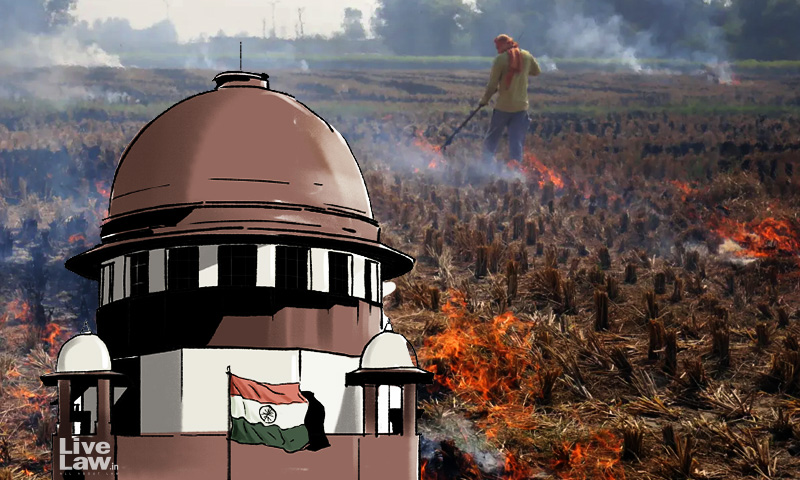 |
|
The Supreme Court of India has severely reprimanded the states of Punjab and Haryana, as well as the Commission for Air Quality Management in Delhi NCR (CAQM), for their inadequate efforts in prosecuting those who violate orders aimed at curbing stubble burning. The court highlighted the pressing need for stronger punitive measures, emphasizing the lack of deterrent action against violators despite the availability of stringent legal provisions. The bench expressed deep concern over the rampant practice of stubble burning, a major contributor to the severe air pollution plaguing Delhi and the surrounding regions.
The court's criticism centered on the lax enforcement of the CAQM Act and the Environmental Protection Act, 1986 (EPA). Despite the existence of sections within these Acts that carry substantial penalties for environmental violations, the states have opted for lenient prosecution under less stringent provisions. This, according to the bench, demonstrates a lack of serious commitment to tackling the issue. The court pointed out that even the fines imposed on violators have been minimal, further highlighting the lack of a real deterrent effect.
The court's scrutiny extended to the CAQM itself, raising concerns about the qualifications of its full-time independent technical members. Justice Oka questioned whether these members possessed the necessary expertise to effectively address the complex issue of air pollution. The bench also criticized the infrequent meetings of the CAQM's sub-committees, specifically the Sub-Committee for Safeguarding and Enforcement, which is responsible for monitoring and enforcing regulations related to stubble burning. This lack of active engagement was deemed detrimental to the commission's effectiveness in achieving its stated goals.
The court's order underscores the urgency of addressing the problem of stubble burning, which has far-reaching consequences for public health and environmental sustainability. The emphasis on stricter enforcement, increased accountability from both the states and the CAQM, and a shift towards more effective deterrent measures reflects the court's determination to hold responsible parties accountable for their inaction. The case highlights the critical role of strong legal frameworks and effective implementation in achieving environmental protection goals.
